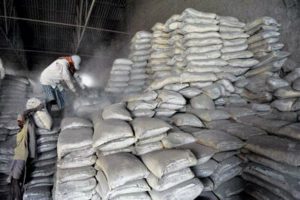Competition Commission of India: While imposing penalties upon 10 cement companies and their trade association i.e. Cement Manufacturers Association (CMA) for cartelisation in the cement industry, the Commission noted the action of the cement companies and CMA as being not only detrimental to the interests of consumers but also as detrimental to the whole economy, as cement is a critical input in construction and infrastructure industry and thus vital for the economic development of the country.
The information in the present case was filed by Builders Association of India under Section 19(1)(a) of the Competition Act, 2002 (the Act) against the cement companies and CMA alleging contravention of the provisions of the Act. While holding the cement companies and CMA in contravention of the Act, it was noted by CCI that the cement companies used the platform provided by CMA and shared details relating to prices, capacity utilisation, production and dispatch and thereby restricted production and supplies in the market, contravening the provisions of Section 3(1) read with Section 3(3)(b) of the Act. Further, CCI also found the cement companies to be acting in concert in fixing prices of cement in contravention of the provisions of Section 3(1) read with Section 3(3)(a) of the Act. Accordingly, penalties of Rs. 1147.59 crores (ACC), Rs. 1163.91 crores (ACL), Rs. 167.32 crores (Binani), Rs. 274.02 crores (Century), Rs. 187.48 crores (India Cements), Rs. 128.54 crores (J K Cements), Rs. 490.01 crores (Lafarge), Rs. 258.63 crores (Ramco), Rs. 1175.49 crores (UltraTech) and Rs. 1323.60 crores (Jaiprakash Associates Limited) have been imposed by CCI. In addition, a penalty of Rs. 0.73 crore has also been imposed on CMA.
The Commission directed the cement companies and CMA to cease and desist from indulging in any activity relating to agreement, understanding or arrangement on prices, production and supply of cement in the market. CMA has been further directed to disengage and disassociate itself from collecting wholesale and retail prices through member cement companies or otherwise. Also, CMA has been restrained from collecting and circulating the details relating to production and dispatch by cement companies. While highlighting the role played by trade associations in promoting the interests of their members and the industry they serve, CCI noted in its order that cement companies were interacting using the platform made available by the trade association (CMA). Such interactions have been found to have transgressed the limits in sharing of information and extended to discussions on cost, prices, production and capacities, thereby, facilitating the enterprises to determine prices and production in a concerted and collusive manner, than in a competitive manner. CCI cautioned that all those who participate in association activities, through meetings or otherwise, whether as a member or an executive or manager or employee, have to be sensitive to the discussions not transgressing advertently or otherwise into anti-trust behaviour or practices. [Builders Association of India vs Cement Manufacturers’ Association, 2016 SCC Online CCI 46, decided on 31st August, 2016]

